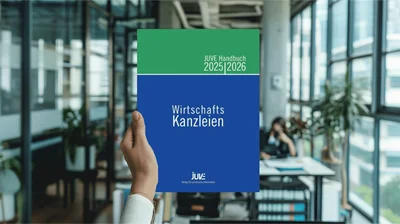What to Do After Criminal Proceedings Have Been Initiated in Germany?
Termination of criminal proceedings: Advise by attorneys for commercial criminal law
If a German prosecuting authority, such as the public prosecutor's office, the main customs office or the tax office, has initiated criminal investigation proceedings against companies for a commercial criminal offence, there is no need to panic. For accusations such as
-
tax evasion,
-
fraud,
-
breach of trust,
-
corruption or
-
money laundering,
there are various options for the termination of a criminal case to avoid a conviction. Our criminal defence attorneys usually pursue such a termination as their primary objective. We will briefly outline the options available for terminating public criminal proceedings.

Elimination of suspicion (§ 170 StPO)
In our opinion, the objective should first be the acceleration of the unconditional termination of the criminal proceedings. If, for example,
- the offence cannot be proven,
- there is evidence that cannot be used for legal reasons due to errors or
- there are procedural obstacles,
the criminal proceedings are to be discontinued before the indictment is filed in accordance with § 170 of the German Criminal Procedure Code (Strafprozessordnung, StPO). If successful, the defendant will not be required to pay a fine, monetary assessment or penalty.
According to § 170 of the Criminal Procedure Code, the termination is comparable to an acquittal, as the criminal proceedings are ultimately discontinued. However, this occurs before the indictment, that is, before the accused has had to appear in court. In this way, the psychological stress of a court hearing as well as the damage to the reputation, as criminal trials are public, can be avoided.
Consult a criminal defense lawyer early on
In order to not complicate such an extrajudicial termination, it is therefore extremely important that a criminal defence lawyer is entrusted with the criminal defence as early as possible and that written or oral statements shall not be submitted to the prosecuting authorities without consulting the lawyer. As a defendant, you have the right to an attorney (criminal defence lawyer) and to remain silent. Pending consultation with a defence lawyer, all persons concerned should therefore exercise the right to remain silent.
Minor culpability (§ 153 StPO)
If, in contrast to the termination pursuant to § 170 of the Criminal Procedure Code, it can be assumed that it can be proven with predominant plausibility that an offence has been committed, a termination pursuant to § 153 of the Code of Criminal Procedure may be considered. A prerequisite for such a termination is that the accused is charged with a misdemeanor and not a felony, i.e. an act that is not punishable by a minimum term of imprisonment of one year. Many commercial criminal offences are misdemeanors, whereby § 153 of the Criminal Procedure Code applies.
However, for a termination pursuant to § 153 of the Criminal Procedure Code, "the culpability of the offender must be minor," and there must be no public interest in the prosecution. Whether the offender's culpability is minor is a matter of judgment.
In commercial criminal cases, this type of termination is rare, as the prosecuting authorities face difficulties in presuming minor culpability, if only due to the significance of the cases and the extent of the damage. A termination of offences that are "witnessed” is, however, more common. The extent of the prosecution in appropriate cases can thus be reduced through a partial termination.
Termination of proceedings against the imposition of a fine (§ 153a StPO)
According to our observations, the most frequent type of termination occurs in accordance with § 153a of the Criminal Procedure Code. The prosecuting authority (public prosecutor's office or tax office) can discontinue proceedings in the case of an offence against the imposition of a fine. The consent of the competent court and of the accused must be obtained for this purpose. The imposition of the fine must be aptly set to eliminate public interest in the criminal prosecution, and the severity of the fault must not stand in the way of the termination.
This form of termination is particularly common in corporate criminal law, as the payment of (high) fines eliminates the interest in prosecution, and, in contrast to a fine, the defendant is not considered to have a criminal record. In fact, on account of the termination, a statement is not made about the guilt of the accused.
In practice, it can be observed that the termination pursuant to § 153a of the Criminal Procedure Code often leads to fair results: The prosecuting authorities do not have to expend further capacities on the criminal proceedings; the accused, on the contrary, gets an explicit "shot across the bow" without the destruction of their lives because, unlike in the case of a fine or imprisonment, an accused whose proceedings have been terminated by the prosecution authority in accordance with § 170 of the Criminal Procedure Code is not deemed to be "unreliable" in the sense of commercial law, for example. Furthermore, in professional (e.g. doctors, architects, engineers, tax consultants, lawyers) and disciplinary (e.g. civil servants, soldiers) proceedings, the defence is easier if the criminal proceedings have been terminated.
The imposed fine is to be paid - based on the court's decision - either to certain charitable organizations or to the state treasury. A charitable deduction is not permitted.
There is no limit to the amount of the fine. The amount is conclusively determined by the accusation and the records; additionally, the body of evidence, the legal situation and, often, the current - not the during the crime - economic situation of the accused are considered. The accused can exert critical influence on the amount of the fine through their defence counsel.
Closure of criminal proceedings following the imposition of a fine
The fine is not a termination of the preliminary proceedings in the strict sense. Rather, it is the conclusion of the proceedings in terms of the criminal procedure. The defendant is fined for their crime. The amount shall be paid to the State Treasury. The fine is determined from the number of daily fines in lieu of jail time and the daily fine amount: The number of daily fines is determined by the severity of the offence committed. The daily fine amount is determined by the defendant's current net monthly income.
WINHELLER advises on all aspects of criminal proceedings in Germany
A conviction as well as an order of summary punishment should be avoided if possible. After a conviction - in contrast to a termination pursuant to § 153a of the Criminal Procedure Code -, many legal protection insurances demand a return of the payments already made for the criminal defence, as intentional acts are not insured. In some cases, directing the defence to the imposition of a fine makes sense: when a termination is not possible and a prison sentence is otherwise expected.
For all persons concerned: As soon as you learn of any investigations, you should contact a commercial criminal lawyer. Our criminal defence experts will gladly assist you expeditiously and discreetly.
Your attorney for criminal proceedings in commercial criminal law
Would you like to prevent a preliminary investigation in Germany or have you already been confronted with one? You can contact our attorneys for defence and advice in commercial criminal law by e-mail (info@winheller.com) or by telephone (+49 69 76 75 77 80).
Do you need support?
Do you have questions about our services or would you like to arrange a personal consultation? We look forward to hearing from you! Please fill in the following information.
Or give us a call: +49 69 76 75 77 80





